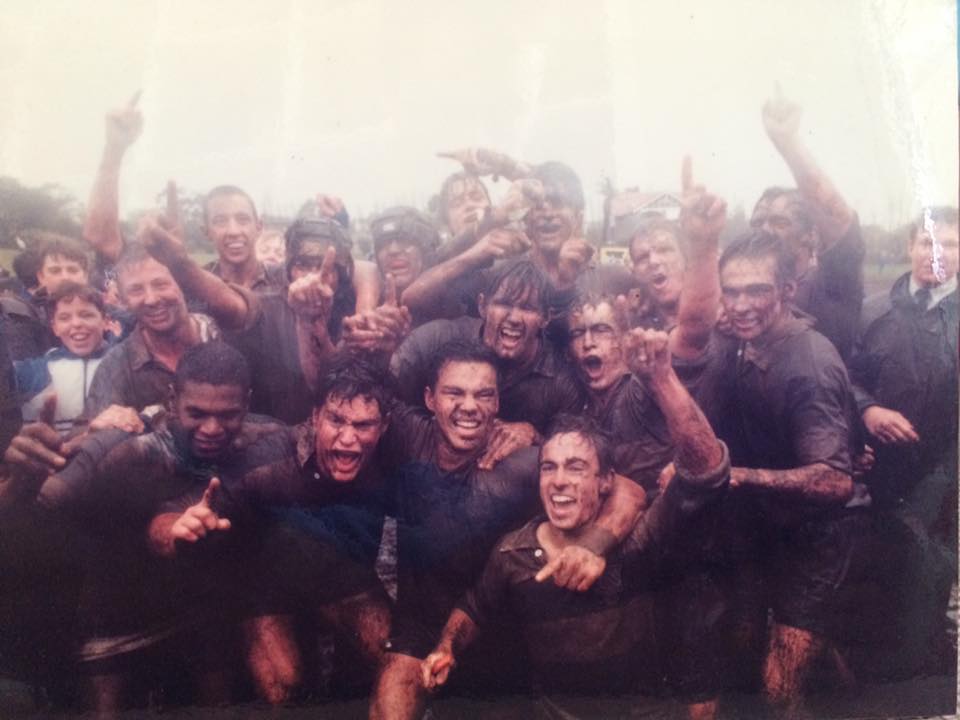In my rugby playing days I always performed well in wet and muddy conditions. The majority of outside backs would hope for sunny skies, zero precipitation and a gentle breeze. I made a choice very early in my career that if a hurricane came through town on game day that I was going to love it, and I did. The end result is that I always had a blinder in the sludge.
Variables in weather align with the core learnings of Stoicism and its emphasis on focusing on what is within our control, particularly our actions and reactions.
In Stoicism, external events such as the weather, are indifferent to our true well-being because they are beyond our control. What matters more is how we choose to perceive and respond to these events. The Stoics argue that our emotions and judgments arise not from the events themselves but from our interpretations and beliefs about them.
When it comes to the weather, some people might view a snowy cold day as “bad” because it disrupts their plans or makes them feel gloomy, while others that ski see it as “good” because they get to carve some deep fresh turns in the pow-pow. Pilots may detest a crosswind but sailors and kite-boarders love it.
I’m using the weather and my rugby as a metaphor because there is no such thing as good or bad weather. There’s just the weather. It’s our subjective judgments that label it as good or bad.
We should strive to differentiate between what is within our control (our thoughts, emotions, choices, and actions) and what is outside our control (external circumstances, other people’s opinions, and daily obstacles). By focusing on what we can control, we can maintain a sense of inner peace and resilience. This aligns with the idea that we cannot control “the weather”, but we can control how we react to it.
What about extreme examples that fall out of your control? The loss of a loved one, failure due to injury, financial difficulties due to a market dive, illness, injustice or even a natural disaster. How do we respond to these by controlling our reactions, maintaining inner tranquillity, and focusing on what is within our sphere of influence?
In each of these adverse examples, the Stoics would emphasise the importance of maintaining virtuous character traits and applying reason and wisdom to navigate challenging situations.
The Stoics would:
In death acknowledge their feelings of grief and sadness but would also remind themselves that death is a natural part of life. They would focus on cherishing the memories of the person and practising gratitude for the time they had together.
View failure as an opportunity for growth and learning. They would accept responsibility for their actions, reflect on what went wrong, and strive to improve themselves moving forward.
In financial strain practice frugality and simplicity in their lifestyle, recognising that material possessions are not the source of true happiness. They would focus on what they can control, such as their actions, values, and reactions, rather than being overly attached to external wealth.
Endure illness with patience and resilience, understanding that getting sick and pain is a natural part of life. They would separate the sensation of pain from their emotional response to it, minimising suffering by maintaining an attitude of acceptance and detachment.
Strive to address injustices when possible, but they would also recognise that external events and other people’s actions are beyond their control. They would focus on maintaining their own sense of justice and integrity, refusing to compromise their own virtue in response to the actions of others.
Acknowledge the unpredictability of nature and the impermanence of external circumstances. They would focus on their own preparedness, adaptability, and the well-being of those around them while accepting that some events are beyond human control.
Death, failure, financial loss or bankruptcy, illness, injustice a natural disaster. In each of these adverse examples, the Stoics would emphasise the importance of maintaining virtuous character traits and applying reason and wisdom to navigate challenging situations.
Maybe easier said than done but the world may well be a better place if everyone’s goal was to attempt tranquility and inner peace regardless of external circumstances.
Marcus Aurelius said it best; “You have power over your mind — not outside events. Realise this, and you will find strength.”
If it’s “raining today”, love it and play well!!





Love it Dom. Well said. Made me stop and consider my own challenges. Thanks for sharing.
Craig Brown
Cheers Craig. Thanks so much for reading. As I said at the end of the post, It is much easier said than done but if you are consciously aware of the way you respond it does seem to help and improve your character. Another good quote from Marcus Aurelius – “If you are distressed by anything external, the pain is not due to the thing itself, but to your estimate of it; and this you have the power to revoke at any moment.”
I hope you’re getting though your own challenges a best you can – Cheers, Dom